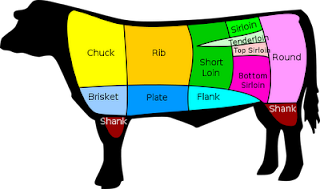Food and Culture: English 7-8
Jamie Zartler
Thank you for being here this evening. We should partner because we have the same goals.
To partner we need to be in communication.
Email: JZartler@pps.net works best for me. 503.916..5160 75 700 might work better for you.
I'm generally not at Grant Monday afternoons, Wednesdays, and Fridays.
I do use Edbox, and you should, too.
All this contact information is on the school web page:
Zartler on GrantHS.com .
This is also the place to find my syllabus for this course. The main ideas captured there are: This is an English Course; students need to read and to write. Students should learn thinking skills as well as skills that will help them learn and be productive their entire lives.
Food and Culture is NOT a Home Economics class, though I hope my students will learn something about cooking and eating well. (And thank you for those of you who have been able to help with the suggested materials fee donation.) There will be opportunities for students to eat in class, and for them to cook in class. (Parental Warning: knives are sharp. Appropriate instruction in the use of sharp tools will be provided, but students must exercise due caution.) The idea behind the Food and Culture class is that there are many, many interesting questions that arise when we think carefully and critically about food and how reflects culture.
The Grant English Department has, over the last several years, increasingly recognized the value of non-fiction in our curricula. As an English Class Food and Culture will have a bias towards non-fiction works. However we will also be study both short fiction and a novel -- Like Water for Chocolate -- that feature food as important symbols or motifs. Additionally, all students will have required independent reading projects throughout the year based in this evolving reading list.
(Second Parental Warning: Part of the theory behind this class is that food is a vital part of our culture. Since our culture is embedded in the communities that we live in, I will ask your students to make observations and conduct research in their community and surrounding neighborhoods. Alternative assignments can be arranged.)
At the Zartler on GrantHS.com web page, you can also find my Food and Culture Blog. The blog is vital to your student's success. The blog is primarily designed to help students track what they missed (or forgot that they didn't miss) in class. I generally ask students to "check the blog" as a first step when they have missed class. However, they may need to follow up with me for handouts or other activities. (Interestingly, some parents have found the blog a useful cure for the short lived question, "What did you do in school today?" You can also use the "What's Cooking" entries as a place to have conversations.)
If you have concerns that I don't have time or that are not appropriate to address now, please contact me as soon as possible.
Again, thank you for being part of your student's education and the Grant Community.
Finally, many Grant families have been generous in their support of materials and books for this class. The sense of being a community in part represented by this generous spirit is what helps make Grant a great place.
Wish list: flatware, paper products, mixing and serving bowls, and "Vintage" cookbooks are currently the highest priority.










